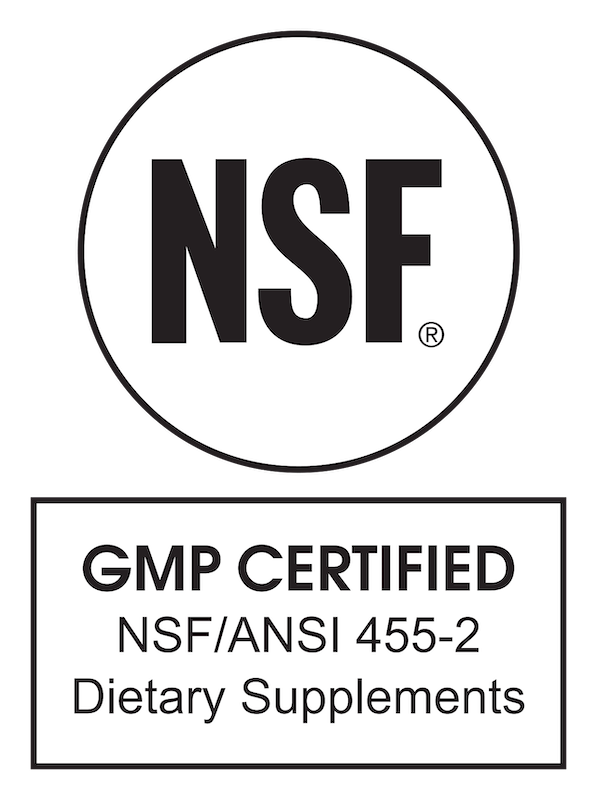NSF Certification

NSF
About NSF
NSF is an independent, global organization that develops standards to minimize adverse health effects and protect the environment. With operations in 180 countries, NSF tests and certifies products for the food, water, health sciences, and consumer goods industries. Founded in 1944, NSF is committed to protecting human health and safety worldwide.
The NSF/ANSI 455 GMP standards are designed to strengthen safety, quality and trust throughout the supply chain, combine regulatory requirements with retailer quality requirements and reduce the number of audits and financial costs associated with audits. Utilizing GMP guidelines assists companies in developing and maintaining proper controls in their manufacturing process so that products are processed, manufactured and labeled in a consistent manner, and meet quality standards.
What is GMP certification?
Good Manufacturing Practices (GMP) are a system of processes, procedures, and documentation designed to exert control over product manufacturing, ensuring the quality and safety of the product. These GMP standards under NSF/ANSI 455 were developed in accordance with American National Standards Institute requirements. NSF independently certifies manufacturers as meeting GMP requirements. The program is open to manufacturers and packagers of dietary supplements who want to demonstrate their commitment to public safety. Independent certification from the global public health organization demonstrates a commitment to dietary supplement quality and compliance with U.S. GMP requirements.
What does it take to be NSF GMP certified?
NSF GMP certification verifies that a facility is audited annually for quality and safety, ensuring compliance with federal regulations, retailer input, and industry good manufacturing practices.
Good Manufacturing Practices (GMP) certification includes but not limited to:
● Audits of all production facilities that manufacture, package, warehouse or distribute dietary supplements
● Review of the quality unit and leadership structure
● Review of quality control testing procedures for raw materials and finished products
● Review of maintenance, housekeeping, cleaning and sanitization procedures
● Review of sourcing and traceability procedure, and product safety procedures
● Review of training and qualification programs
● Review of product recall and adverse event reporting procedures
To learn more visit NSF's website.
